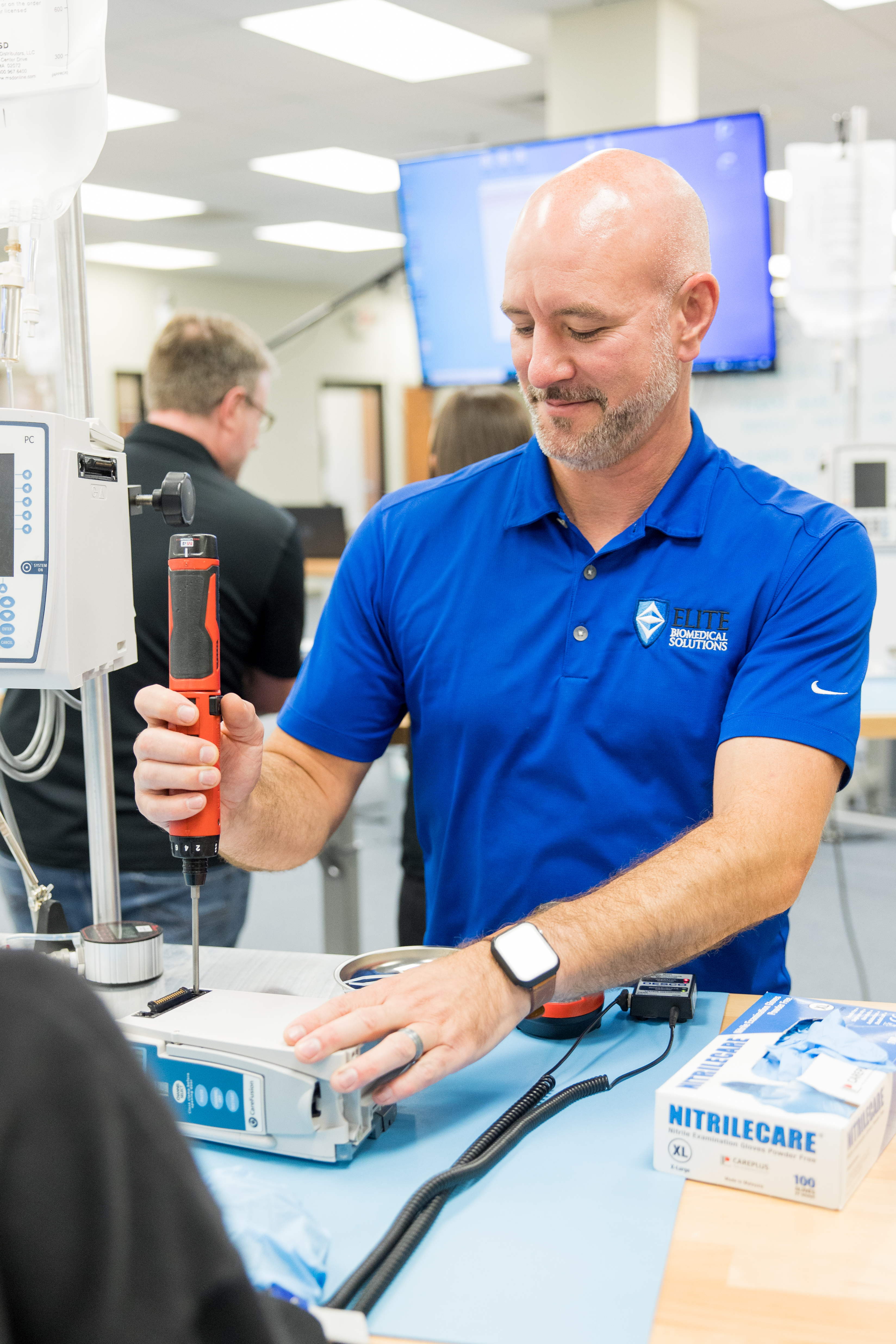Biomedical Equipment Technician Training Considerations
Biomedical Equipment Technicians (BMETs) play a critical role in delivering high-quality medical care because they keep medical equipment safe and functioning. The job requires a diverse skill set; BMETs must have mechanical know-how, IT literacy, medical knowledge, and an understanding of regulations, the supply chain, service contracts, and HIPAA compliance.
Being a BMET is a rewarding, fast-paced profession — one that’s also in high demand. It’s an important role as patient lives depend on BMETs as much as they depend on the skills of clinicians.

What to expect from Elite’s
Biomedical Technician Training Program

Elite Biomedical Solutions works with hospitals, health systems, ISOs, maintenance partners, and other employers of early career biomed technicians. Our flexible training curriculum is always customized and tailored to meet the individual needs of each and every client.
Our process begins with a survey for attendees. This includes questions about the specific devices they encounter in their organization, which devices they’re most familiar with, and the equipment for which they’d most benefit from additional hands-on training.
Based on the survey results, Elite’s training coordinators develop a proposal for a customized course that is broken down into individual classes to target a specific device or device series.
BMET Training Structure
The training structure depends on the coursework selected. All training modules are taught by Elite’s level 2-3 biomedical equipment technicians, and include a corresponding hands-on lab at Elite’s fully equipped training facility.
Most classes cover the following:
- General device introduction and history
- Basic principles of operation
- Troubleshooting with the user manual
- Repair basics
- PM instruction and tips
- Electrical safety test instruction
Depending on your needs, training may also include a communication skills segment. For example, recent training has covered how to approach equipment-related conversations with non-technical stakeholders such as clinicians or department heads. Upon request, training can also include additional segments addressing other specified topics.
Examples of individual BMET classes include the following popular medical devices:
- BD Carefusion 8015 & 8100
- BD Carefusion 8110, 8120, 8300
- Hospira/Abbot Plum A+ & 360
- GE Apex Pro FH & CH
- Phillips MX40, 4841, Intellivue X2
What happens after you finish the BMET training?
Attendees receive a BMET certification that qualifies for continuing education credits with the Association for the Advancement of Medical Instrumentation (AAMI).
Ongoing tech support remains available to attendees after each training. If you have a problem with a device in the future, you can call the same people who trained you to get a quick answer or to talk about any issues you’re experiencing.
This gives attendees extra time to get to know one another, meet the instructors, and make valuable connections for their career.
What our BMET trainees had to say:
“Everything was exceptional! If I had any problems or questions they were immediately addressed.”
“Overall, all the instructors were very knowledgeable and helpful. The courses were well organized and useful. I would recommend this training to anyone.”

